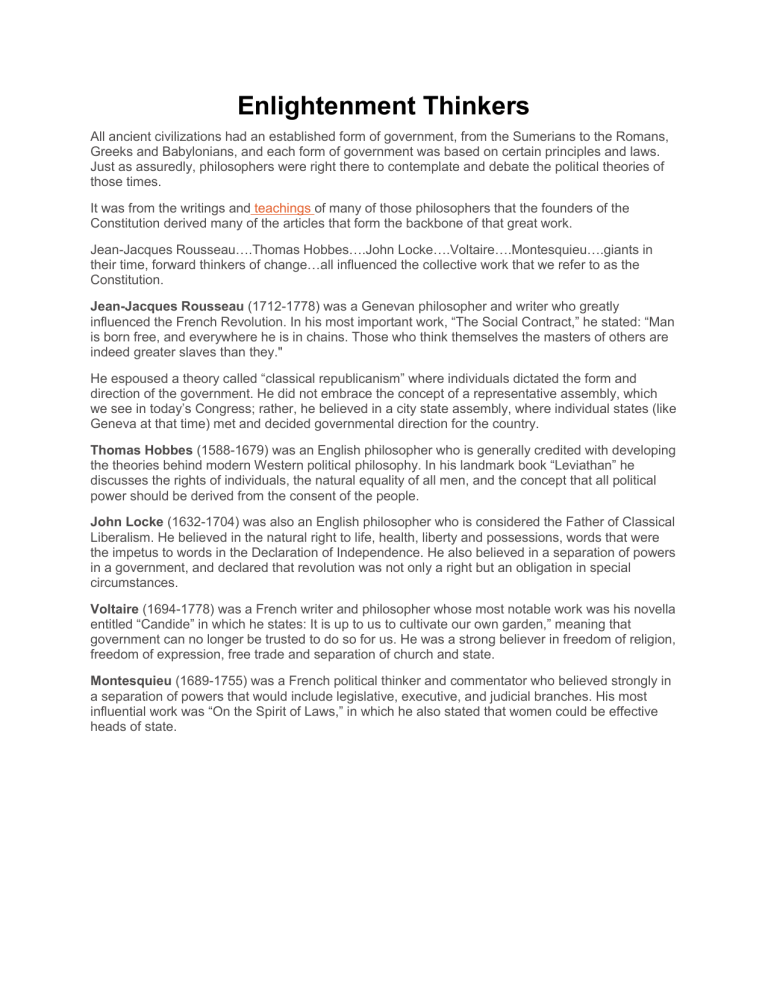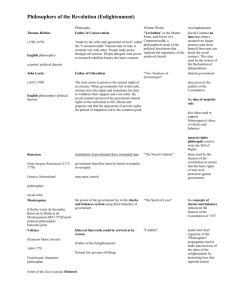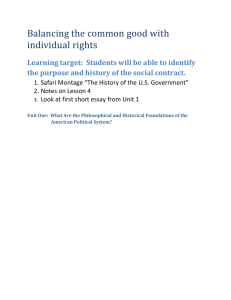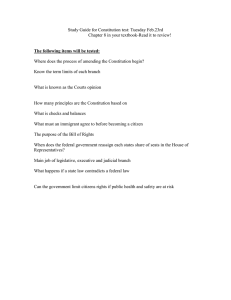
Enlightenment Thinkers All ancient civilizations had an established form of government, from the Sumerians to the Romans, Greeks and Babylonians, and each form of government was based on certain principles and laws. Just as assuredly, philosophers were right there to contemplate and debate the political theories of those times. It was from the writings and teachings of many of those philosophers that the founders of the Constitution derived many of the articles that form the backbone of that great work. Jean-Jacques Rousseau….Thomas Hobbes….John Locke….Voltaire….Montesquieu….giants in their time, forward thinkers of change…all influenced the collective work that we refer to as the Constitution. Jean-Jacques Rousseau (1712-1778) was a Genevan philosopher and writer who greatly influenced the French Revolution. In his most important work, “The Social Contract,” he stated: “Man is born free, and everywhere he is in chains. Those who think themselves the masters of others are indeed greater slaves than they." He espoused a theory called “classical republicanism” where individuals dictated the form and direction of the government. He did not embrace the concept of a representative assembly, which we see in today’s Congress; rather, he believed in a city state assembly, where individual states (like Geneva at that time) met and decided governmental direction for the country. Thomas Hobbes (1588-1679) was an English philosopher who is generally credited with developing the theories behind modern Western political philosophy. In his landmark book “Leviathan” he discusses the rights of individuals, the natural equality of all men, and the concept that all political power should be derived from the consent of the people. John Locke (1632-1704) was also an English philosopher who is considered the Father of Classical Liberalism. He believed in the natural right to life, health, liberty and possessions, words that were the impetus to words in the Declaration of Independence. He also believed in a separation of powers in a government, and declared that revolution was not only a right but an obligation in special circumstances. Voltaire (1694-1778) was a French writer and philosopher whose most notable work was his novella entitled “Candide” in which he states: It is up to us to cultivate our own garden,” meaning that government can no longer be trusted to do so for us. He was a strong believer in freedom of religion, freedom of expression, free trade and separation of church and state. Montesquieu (1689-1755) was a French political thinker and commentator who believed strongly in a separation of powers that would include legislative, executive, and judicial branches. His most influential work was “On the Spirit of Laws,” in which he also stated that women could be effective heads of state. Documents that influenced the US Constitution The architects of the Constitution were great students of history. They had studied the historical events of the past, taken lessons from each of them, and used those as guidelines in shaping this new nation. Let’s take a look at some of those events and see what was derived from them. Magna Carta (1215) was considered a landmark document regarding limiting the power of a ruler. It was a direct challenge to King John of England and declared that no freeman could be punished without use of the law of the land. Although many of its provisions were repealed within one hundred years of its signing, it still stands as revolutionary in its boldness and challenge of authority. English Bill of Rights (1689) further limited the monarchy in England, this time at the cost of King James II. Unlike Magna Carta, the English Bill of Rights is still in effect and is a cornerstone of law in the United Kingdom. It calls for freedom of speech, regular elections, the right to petition, the right to bear arms, no cruel or unusual punishment and calls for the consent of the people. The Roman Republic and Empire (509 BC-476 AD) was considered by the writers of the Constitution to be the perfect example of wealth and its evils. The U.S. founding fathers were fascinated by Roman history and in particular the corruption that they considered a natural product of unbridled wealth. Connecticut Fundamental Orders (1639) is considered the first written constitution in the Colonies, and it is most noteworthy because it contains a Declaration of Rights for individuals. Comparing this document with the United States Constitution and the Bill of Rights, one can see many similarities.






